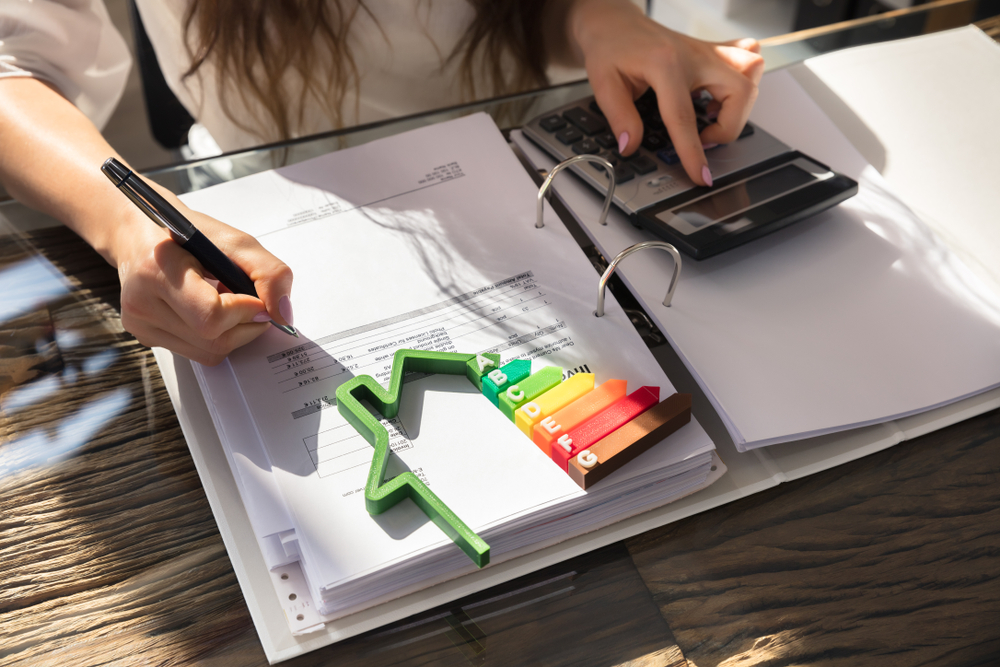Is A Home Energy Audit Worth It?
An average household in the U.S. spends more than $2,000 per year on energy bills. The good news is you can lower your annual energy bills by improving your home’s energy efficiency. The bad news is that many people struggle to figure out what steps they should take to make their home more energy efficient.
A simple solution to this problem is conducting a home energy audit to learn more about your home’s energy consumption. But is a home energy audit worth it? Here’s what you should know:
What is the Purpose of a Home Energy Audit?
A home energy audit assesses the way energy is used in your home to determine where you are losing energy and what improvements or lifestyle changes you can make to improve your energy efficiency.
Basically, it gives you the information you need to learn how you can reduce your energy consumption at home so you can lower your monthly utility bills.
How Much Does A Home Energy Audit Cost?
The cost of a home energy audit will vary depending on whether you choose to hire a professional or perform a DIY audit. Hiring a professional to conduct a home energy audit can cost between $250 to $650.
Many people cannot afford to spend hundreds of dollars on a professional home energy audit. Fortunately, there is a more affordable option available. You can conduct a home energy audit for free using the Benefyd app. To assess your home’s energy consumption, the app will ask simple questions such as:
- Do you have a programmable thermostat?
- Do you have a low flow faucet in your bathroom?
- What is the temperature on your thermostat?
- What is the temperature on your water heater?
You don’t need to be an expert on energy efficiency in order to complete the home energy audit using the Benefyd app. In fact, the entire process takes less than five minutes.
What Does A Comprehensive Home Energy Audit Consist Of?
It’s important to learn what a comprehensive home energy audit consists of so you know what to expect. There are several stages in the home energy audit process, including:
- Meeting With the Professional Auditor
- Assessment of Energy Bills
- Inspection
- Recommendations
Meeting With the Professional Auditor
If you choose to hire a professional to conduct your audit, the first step will be meeting with the auditor to discuss your specific needs and concerns. If you are experiencing certain issues in your home, such as cold drafts, make sure you tell your auditor during this initial meeting.

Assessment of Energy Bills
The professional auditor may ask you to provide copies of your most recent energy bills. This allows the auditor to see how much energy your home is currently consuming. The auditor will use the information on these bills to estimate how much you can save by making certain energy efficient upgrades and improvements.
Inspection
The next stage is the inspection, which is the actual assessment of your home’s energy usage. The auditor may begin by conducting a visual inspection of certain aspects of your home, including the roofing and heating and cooling system.
Then, the auditor will perform a series of diagnostic tests that are designed to identify energy efficiency issues in your home. For example, a thermographic scan can be performed to determine if your home needs additional insulation. The auditor may also conduct a blower test to identify potential air leaks.
Recommendations
During the final stage of the audit, the professional auditor will provide you with recommendations on how to improve the energy efficiency of your home. These recommendations will be made based on the information gathered during the inspection. For instance, if air leaks were detected, the auditor may recommend sealing them with caulking or weatherstripping.
What Are the Benefits of Doing An Energy Audit?
There are a number of benefits to conducting a home energy audit, including:
- Reduce your energy consumption. Learning how you use energy—and how energy is wasted in your home—can help you make improvements or lifestyle changes that will reduce your energy usage.
- Lower your monthly utility bills. Taking action to reduce your energy usage will also help you save money by lowering your monthly utility bills.
- Increase the resale value of your home. Numerous studies have shown that energy efficient homes sell for more than other comparable homes.
- Creates a more comfortable living environment. Performing an energy audit will help you fix certain issues—such as cold drafts or inefficient appliances—that make living at home uncomfortable or inconvenient.
- Creates a healthier living environment. A home energy audit can also help you identify and fix issues that could affect your health, such as mold and mildew growth.
If you want to enjoy the benefits of living in an energy efficient home, conducting a home energy audit is the perfect place to start. Perform a DIY energy audit today so you can move one step closer to saving money and living a greener lifestyle!


